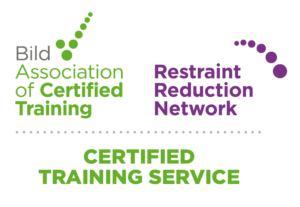Your Team's Passion To Help Children Shouldn’t Feel Painful
We’ve all had “off” days at work…
But when one day quickly turns into weeks and months of feeling overwhelmed and burnt out, it’s time for a wake-up call.
If your Team struggles with:
-
Feeling lost and powerless to control children's behaviour
-
Frustrated that nothing they’ve tried is working
-
They dread work and are taking more and more time off
-
They're losing the passion for a career they once loved
Then, it’s a clear sign that they need a new type of support.
Because they can’t help children in crisis if they’re struggling themselves.






 Yes, the 2, 3 and 4 day courses are all fully certificated by BILD Act under the RRN (Restraint Reduction Network) Training Standards, and all who pass will receive a certificate as part of the course fee.
Yes, the 2, 3 and 4 day courses are all fully certificated by BILD Act under the RRN (Restraint Reduction Network) Training Standards, and all who pass will receive a certificate as part of the course fee. 


